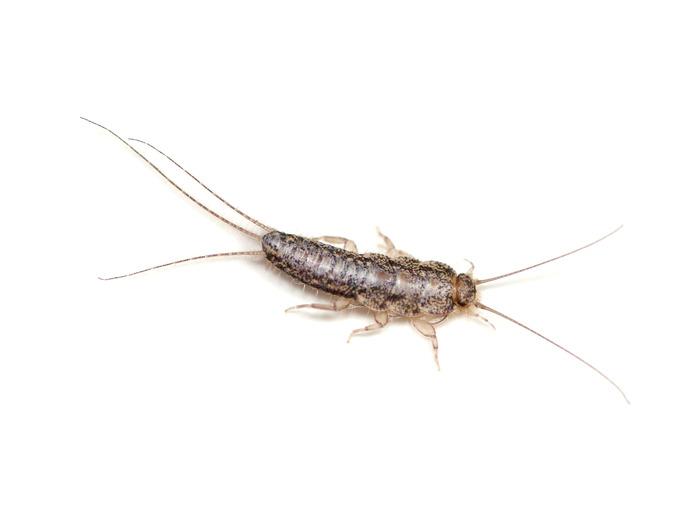Paperfish (Ctenolepisma longicaudata)

Identification
The paperfish resembles the silverfish in appearance but is slightly larger and usually darker. It moves quickly, hides efficiently, and can survive in dry indoor environments. It is often found in bedrooms, living rooms, or among books and documents.
The paperfish feeds on:
- paper, books, and documents
- wallpaper and textiles
- insulation, glue, and dust
Habits
Paperfish thrive in:
- bedrooms and living rooms
- storage rooms and office spaces
- bookshelves and among loose papers
- gaps between baseboards and walls
Unlike silverfish, paperfish tolerate dry conditions well, making them particularly difficult to eliminate. They reproduce slowly but steadily and can spread throughout a building if not treated in time.
Pest control
DIY control methods are often ineffective against paperfish, so professional pest control is strongly recommended. Professional treatment reaches hidden areas within structures and effectively prevents further spread.
Treatment often requires extensive application in multiple rooms and hidden areas.
A professional pest technician will:
- identify and treat problem areas
- apply comprehensive treatment to prevent spread
- follow up and provide preventative advice
Summary
Both silverfish and paperfish can nest unnoticed in building structures and cause long-term problems. Professional treatment is the most reliable way to interrupt reproduction and ensure lasting results.
Pest control visits from 149€

